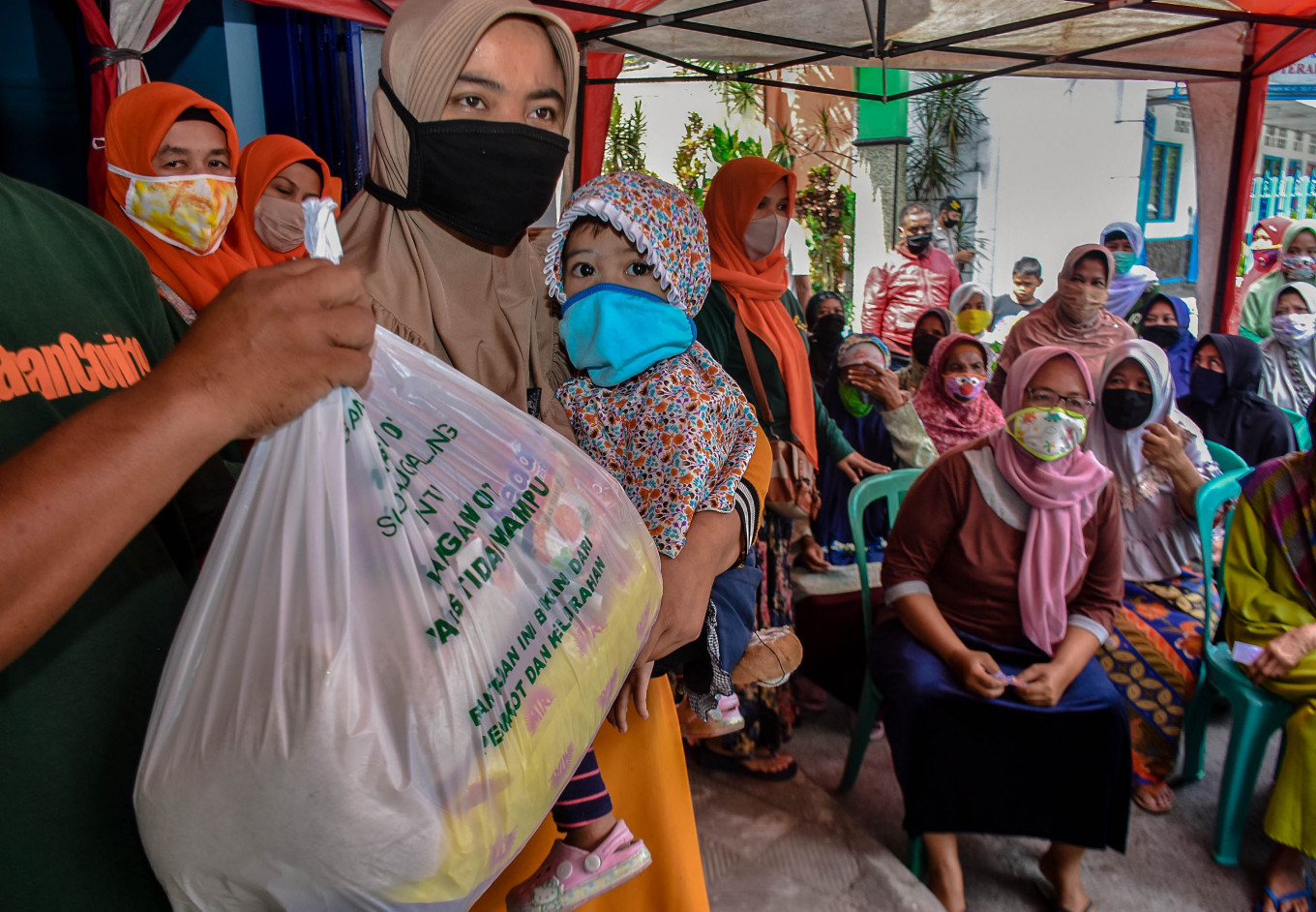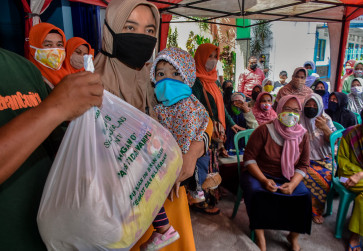Popular Reads
Top Results
Can't find what you're looking for?
View all search resultsPopular Reads
Top Results
Can't find what you're looking for?
View all search resultsDoubts emerge on plan to eradicate extreme poverty by 2024
Achieving the goal proclaimed recently by a Cabinet minister would require more spending on healthcare and business development, says a program director at the Institute for Development of Economics and Finance (INDEF).
Change text size
Gift Premium Articles
to Anyone
W
ith the COVID-19 pandemic having complicated Indonesia's efforts to end poverty and social assistance yet to reach all vulnerable groups, eradicating extreme poverty over the next two years is a tall order.
"The plan to eradicate extreme poverty by 2024 is doable, if the government allocates more funds to health and to the business sector," said Institute for Development of Economics and Finance (INDEF) program director Esther Sri Astuti.
She explained that increasing the health budget would allow the government to accelerate the vaccination drive, which in turn would boost people's mobility, productivity as well as consumption.
Esther noted that additional funds earmarked for health care in the state budget were being spent slowly when compared to other budget items.
Coordinating Economic Affairs Minister Airlangga Hartarto, who had reaffirmed the 2024 target in late September, told the media on Monday that Indonesia had spent 55.9 percent of the national economic recovery (PEN) budget as of Oct. 8. Meanwhile, only 49.7 percent of the healthcare allocation within the PEN budget had been spent by Oct. 8.
Read also: No more extreme poverty by 2024: Airlangga
President Joko "Jokowi" Widodo first proclaimed the 2024 target in March last year.


















